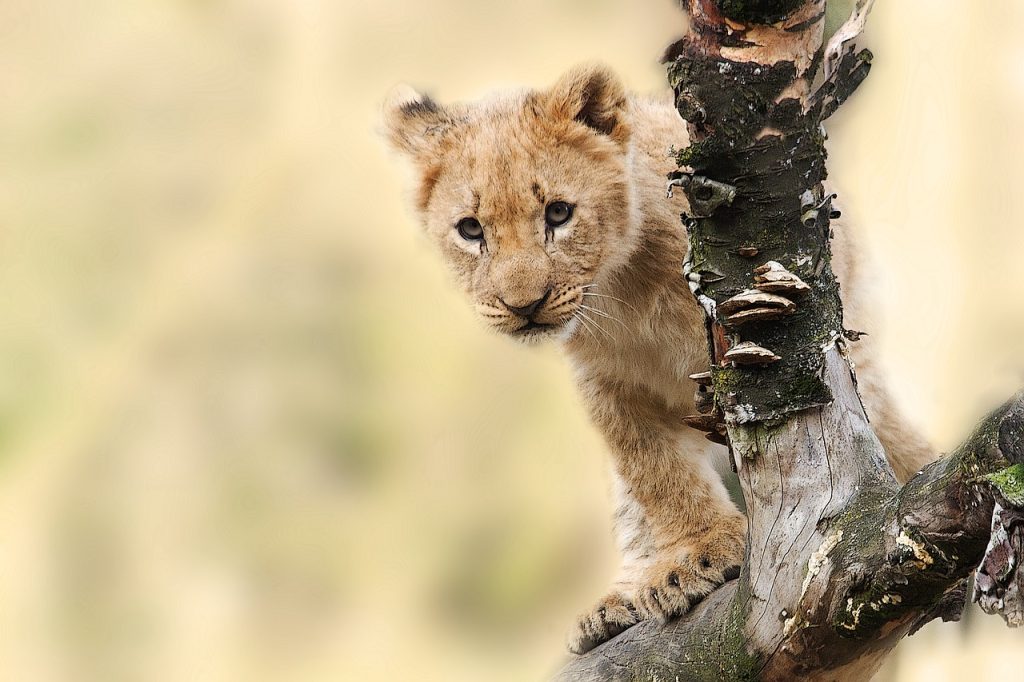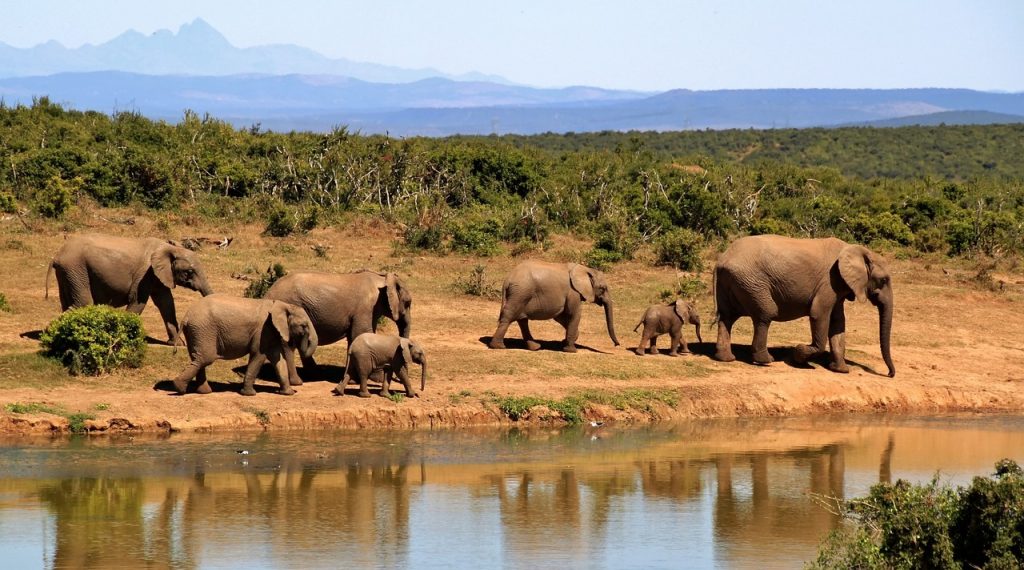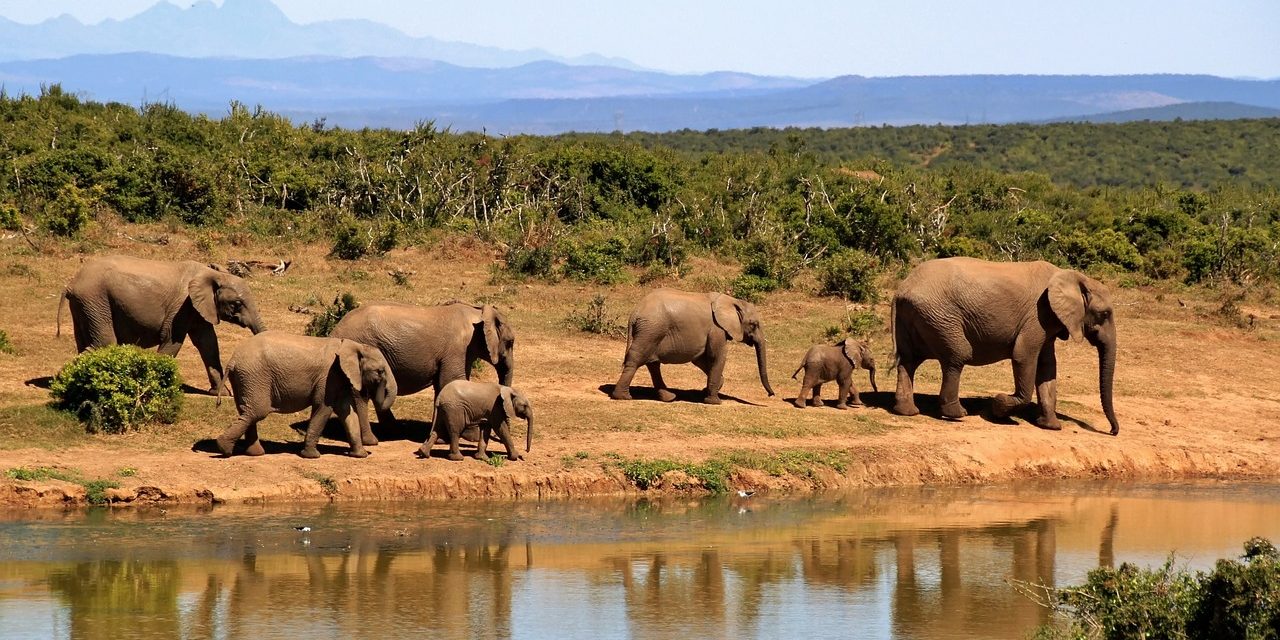So, you’ve booked your dream African safari and you’re ready to embark on an unforgettable adventure. But before you hop on that safari vehicle, it’s important to understand the etiquette that comes with experiencing Africa’s incredible wildlife and immersing yourself in the local communities. This article will give you a brief overview of the do’s and don’ts when it comes to respecting the wildlife and local communities during your African safari. From maintaining a safe distance from the animals to supporting sustainable tourism initiatives, let’s ensure that your safari experience is not only memorable but also respectful towards the magnificent creatures and people you’ll encounter along the way.
Choosing the Right Safari Tour
Planning a safari can be an exciting and memorable experience, but it’s important to choose the right safari tour to ensure a responsible and enjoyable adventure. Researching different safari operators is a crucial first step. Look for operators that prioritize responsible tourism practices and have a strong commitment to wildlife conservation and community development.
Researching Different Safari Operators
When researching safari operators, take the time to read reviews and testimonials from previous travelers. Look for operators that have a good reputation for providing knowledgeable guides, comfortable accommodations, and exceptional customer service. Consider checking if the operators are affiliated with any conservation organizations or have received any certifications for their sustainable practices.
Checking for Responsible Tourism Practices
Responsible tourism practices should be a priority when selecting a safari operator. Look for operators that have a strong focus on sustainable tourism, which encompasses measures to minimize the negative impact on wildlife and the environment. This can include initiatives such as reducing waste, supporting local communities, and investing in conservation efforts.
Respecting Wildlife
While on safari, it’s essential to respect the wildlife and their natural habitat. Here are some guidelines to help you maintain a safe and respectful distance from animals.
Maintaining a Safe Distance from Animals
Approaching wildlife too closely can be dangerous for both you and the animals. Always maintain a safe distance and never attempt to touch or feed the animals. Admire them from afar and remember that they are wild creatures that should be observed in their natural environment.
Avoiding Flash Photography
Using flash photography can startle and distress animals, especially at night. It’s crucial to avoid using flash when taking pictures, as it can disrupt their natural behavior and potentially harm their eyes.
Not Feeding or Touching Animals
Feeding or touching animals may seem harmless, but it can have severe consequences for both the animals and their ecosystems. Feeding wildlife can lead to dependence on human food, making them reliant on unnatural sources and altering their natural behavior. It’s important to refrain from these actions and allow the animals to maintain their natural diets and behaviors.

Protecting the Environment
Preserving the environment is a vital part of responsible safari tourism. By minimizing waste and using eco-friendly products, you can help protect the fragile ecosystems you encounter during your safari.
Minimizing Waste and Using Eco-friendly Products
Be conscious of the waste you generate during your safari and strive to minimize it as much as possible. Dispose of trash properly and consider using reusable items such as water bottles and shopping bags. Additionally, choose eco-friendly products whenever possible, such as biodegradable toiletries and sunscreen.
Following Campsite and Lodge Guidelines
When staying at campsites or lodges, make sure to follow their guidelines for waste disposal, energy conservation, and water usage. These establishments often have sustainability practices in place, and by adhering to their rules, you contribute to their efforts in preserving the environment.
Interacting with Local Communities
When visiting a new destination, it’s essential to be mindful and respectful of the local communities and their culture. By respecting cultural norms and traditions and supporting local economies, you can foster positive relationships and make a meaningful impact.
Respecting Cultural Norms and Traditions
Take the time to educate yourself about the local customs and traditions before your safari. Familiarize yourself with appropriate behavior, dress codes, and greetings to ensure you show respect to the local communities you encounter. Be open to learning from them and embrace the opportunity to immerse yourself in their unique culture.
Supporting Local Economies
One of the best ways to support local communities is by purchasing goods and services from local vendors, guides, and artisans. This helps to stimulate the local economy and provides opportunities for individuals to thrive and improve their quality of life. Opt for locally-led tours and consider purchasing handmade crafts or souvenirs directly from the artisans.

Understanding and Following Park Rules
National parks and wildlife reserves have specific rules in place to protect both visitors and the environment. Familiarize yourself with these rules and regulations to ensure a safe and respectful safari experience.
Staying on Designated Paths and Roads
When exploring national parks, it’s crucial to stay on designated paths and roads. Straying off these routes can have a detrimental impact on the fragile ecosystems and wildlife habitats. By adhering to these rules, you help preserve the natural beauty and minimize disturbances.
Obeying Speed Limits and Wildlife Viewing Time Restrictions
Speed limits and wildlife viewing time restrictions are in place to safeguard both visitors and animals. It’s essential to adhere to these regulations to minimize the risk of accidents and ensure the animals’ well-being. Patience is key, and by following these rules, you increase your chances of witnessing incredible wildlife moments.
Minimizing Human Impact on Wildlife
During your safari, it’s crucial to minimize your impact on wildlife and their habitats. By limiting noise and disturbances and avoiding off-road driving, you can help protect and preserve the delicate ecosystems.
Limiting Noise and Disturbances
When observing wildlife, it’s vital to keep noise levels to a minimum and avoid sudden movements or loud conversations. Animals are easily startled, and excessive noise can disrupt their behavior or even cause them to flee. Show respect for their space by remaining quiet and allowing them to go about their natural activities undisturbed.
Avoiding Off-road Driving
Off-road driving may seem tempting for a closer wildlife encounter, but it can have devastating consequences for the environment. Many areas have strict regulations against off-road driving to protect sensitive vegetation and prevent soil erosion. It’s important to respect these guidelines and stick to designated roads to avoid causing harm to the delicate ecosystems.

Being Ethical in Animal Encounters
Responsible wildlife activities should be a priority when planning your safari. Make informed choices and avoid attractions that exploit or harm animals, ensuring the welfare of the wildlife remains paramount.
Choosing Responsible Wildlife Activities
Before participating in any wildlife activity, research and choose operators that prioritize animal welfare and conservation. Avoid activities that involve captive or trained animals, as these often contribute to their exploitation. Opt for experiences such as guided nature walks or boat safaris that allow you to witness wildlife in their natural habitats.
Avoiding Attractions that Exploit or Harm Animals
Some attractions may offer interactions with wildlife that harm or exploit the animals involved. Activities like riding elephants, petting lion cubs, or walking with cheetahs are often associated with unethical practices. It’s important to avoid supporting these attractions and choose experiences that prioritize the well-being and conservation of the animals.
Dressing Appropriately for the Safari
Dressing appropriately for a safari not only ensures your comfort but also respects the local culture and wildlife. Consider these tips when selecting your safari attire.
Wearing Neutral Colors and Lightweight Clothing
Neutral-colored clothing, such as khaki or olive, helps you blend into the natural surroundings and minimizes disturbance to wildlife. Opt for lightweight and breathable fabrics to stay comfortable in the African heat. Long-sleeved shirts and pants not only protect you from the sun but also act as a barrier against insect bites.
Using Protective Gear and Sunscreen
Sun protection is essential during a safari, as the African sun can be intense. Remember to wear a wide-brimmed hat, sunglasses, and apply sunscreen with a high SPF. Insect repellent is also recommended to deter mosquitoes and other insects.
Tipping and Supporting Local Guides and Staff
Tipping and supporting local guides and staff is an important part of responsible safari tourism. By understanding local customs and expectations, and contributing to conservation and community projects, you can make a positive impact on the local communities you encounter.
Understanding Local Customs and Expectations
Each region may have different customs and expectations regarding tipping and monetary contributions. Take the time to familiarize yourself with the local customs and norms to ensure your gestures are appreciated and appropriate. It’s also worth considering supporting local community projects through donations or volunteering opportunities.
Contributing to Conservation and Community Projects
Many safari operators and lodges have initiatives in place to support conservation and community development projects. Consider contributing to these efforts by donating to relevant projects or participating in volunteer activities during your safari. Your support can make a real difference in preserving the wildlife and improving the lives of local communities.
Being Mindful of Cultural Sensitivity
Respecting cultural sensitivity is crucial when interacting with local communities on your safari. By respecting privacy, seeking permission for photographs, and learning basic phrases and greetings, you can foster positive and meaningful connections with the local people.
Respecting Privacy and Seeking Permission for Photographs
When photographing locals, it’s essential to respect their privacy and seek permission before taking pictures. Always ask for consent and be mindful of their comfort levels. Remember that the people you encounter are not objects or attractions, but individuals with their own rights and dignity.
Learning Basic Local Phrases and Greetings
Learning a few basic phrases and greetings in the local language can go a long way in showing respect and appreciation for the local culture. Locals will likely appreciate your effort to connect with them on a more personal level. Simple greetings, such as “hello” and “thank you,” can make a significant difference in building positive relationships.












